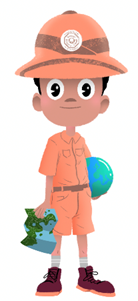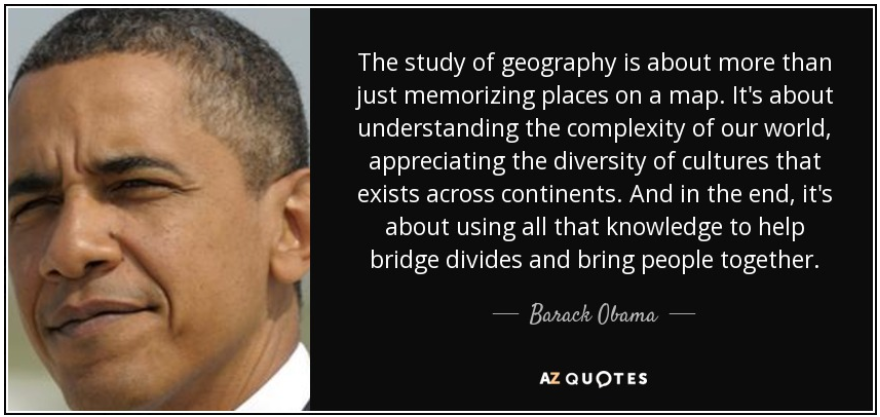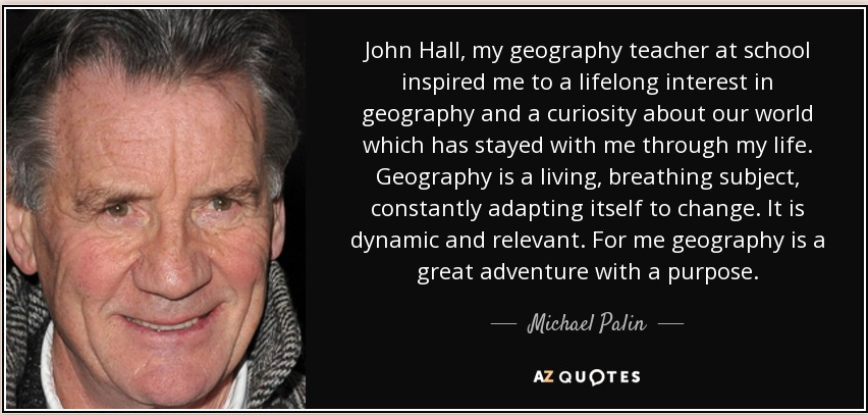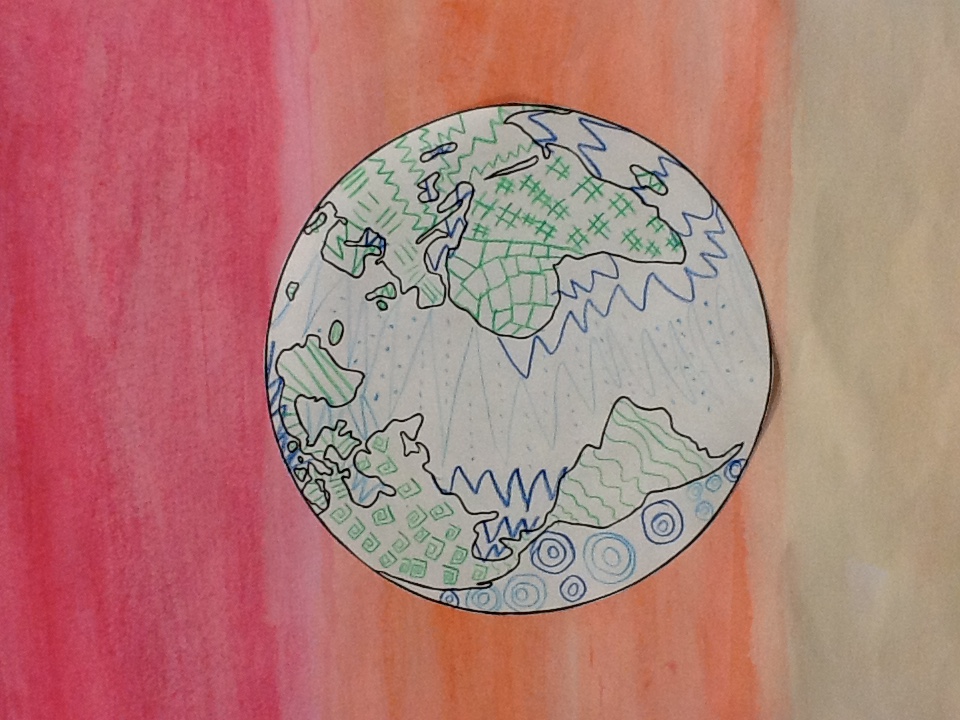Geography
 Welcome to Geography at Bussage! At Bussage, Geography is more than just a subject—it's an adventure. Our creative approach to teaching and learning is designed to ignite children's curiosity and inspire a lasting fascination with the world and its people.
Welcome to Geography at Bussage! At Bussage, Geography is more than just a subject—it's an adventure. Our creative approach to teaching and learning is designed to ignite children's curiosity and inspire a lasting fascination with the world and its people.
Our Vision
We aim to equip children with the knowledge and skills to understand diverse places, people, resources, and both natural and human environments. Through Geography, pupils gain a deep understanding of the Earth's key physical and human processes, helping them make sense of the world around them.

What is a Geographer?
At Bussage, we believe a Geographer is: someone who seeks to understand the world we live in – its people, places, and environments. Geography helps us make sense of our surroundings by collecting, analysing and communicating information from a range of evidence. Geographers are like detectives of the Earth: they explore physical and human features, compare and contrast localities, and develop a knowledge of where places are and what they are like. They learn to interpret maps, globes and atlases, and understand how places are connected and how human and physical environments are interrelated.
Being a geographer means developing curiosity, a sense of place, and a deep appreciation for cultural diversity. It involves recognising our rights and responsibilities as global citizens and encourages care and respect for our planet. Through geography, pupils build a sense of community and belonging – locally, nationally, and globally. As David Attenborough said, “An understanding of the natural world and what’s in it is a source of not only a great curiosity but great fulfilment.”
Geographers develop the skills to express well-balanced opinions and share geographical information clearly. Most importantly, they grow a passion for learning about the world and the people who live in it. The most important thing about Geography is knowing about our world.

Future Careers in Geography
Geography helps children make sense of the world around them, and the skills they develop—such as problem-solving, data analysis, critical thinking, and an understanding of global issues—can lead to a wide range of exciting careers. Young geographers might pursue roles as cartographers, creating detailed maps, or become environmental consultants working to protect our planet. They could explore the world as urban planners, geologists, or climate change analysts, helping to shape sustainable communities and tackle environmental challenges. Careers such as disaster response managers, and conservation officers allow geographers to apply their knowledge in meaningful ways. Others may find their passion in roles like travel writers, tour guides, transport managers, weather presenters, or even diplomats, using their geographical understanding to influence global decisions. Geography opens up a world of possibilities, inspiring careers that truly make a difference.
Our Core Values:
The teaching of Geography at Bussage is guided by our four cornerstones:
- Hope: Inspiring a positive outlook towards environmental stewardship.
- Wisdom: Encouraging thoughtful enquiry and informed decision-making.
- Community: Fostering connections with local and global communities.
- Dignity: Promoting respect for people, cultures, and the natural world.
Through these values, we prepare our pupils for the next stages of their education, helping them develop a strong moral compass, critical thinking skills, and a genuine appreciation for the world they live in.
Join us on a journey of exploration and discovery, where every lesson is an opportunity to see the world through new eyes and make a difference.
Our Geography Curriculum
At Bussage, our Geography teaching is rooted in enquiry-led research activities that encourage critical thinking and independent exploration. We use a variety of engaging methods, including:
- Hands-on data analysis: Working with maps, graphs, photographs, atlases, and ICT tools.
- Real-world activities: Outdoor learning, role play, and practical projects like mapping the local area or investigating environmental issues.
- Experiential learning: Field trips, theme weeks, and environmental studies that bring Geography to life beyond the classroom.
Developing Global Citizens
We encourage children to reflect on humanity's impact on the planet and think critically about sustainable development. By exploring both local and global issues, our pupils become thoughtful, responsible citizens who understand their role in shaping a better future.
Our curriculum focuses on:
The Geography curriculum is covered in a two-yearly teaching cycle within each Key Stage, ensuring that children study all of the content, knowledge and skills required by the National Curriculum.
Details of when the different topics and objectives are covered in each Key Stage can be found in the Curriculum Overview document, which constitutes a long-term plan.
Some objectives are covered more than once within the two-yearly cycle to ensure long term knowledge lasts. Teachers within Key Stages plan together to create engaging and informative teaching and learning opportunities which take into account prior learning and plan for progression.
In both Key Stages the children will cover requirements as outlined in the EYFS (for Reception) and the National Curriculum (for Key Stages 1 and 2).
In Reception, children will:
- Talk about features of the immediate environment and how environments may differ from one another
- Know about similarities in relation to places, objects, materials and living things
- Make observations about animals and plants and explain why some things occur
- Talk about changes in environments
The Early Years Foundation Stage (EYFS) follows the Development Matters in the EYFS” guidance which aims for all children in reception to have an “Understanding of the World; people and communities, the world and technology” by the end of the academic year.
Throughout Key Stages 1 and 2, pupils will learn to:
- Investigate places
- Investigate patterns
- Communicate geographically
They will learn these skills and knowledge by:
In Key Stage 1:
- Investigating the world’s continents and oceans.
- Investigating the countries and capitals of the United Kingdom.
- Comparing and contrasting a small area of the United Kingdom with that of a non-European country.
- Exploring weather and climate in the United Kingdom and around the world.
- Using basic geographical vocabulary to refer to and describe key physical and human features of locations.
- Using world maps, atlases and globes.
- Using simple compass directions.
- Using aerial photographs
- Using fieldwork and observational skills.
In Key Stage 2:
- Locating the world’s countries, with a focus on Europe, North and South America and countries of particular interest to pupils.
- Identifying key geographical features of the countries of the United Kingdom, and showing an understanding of how some of these aspects have changed over time.
- Locating and understanding the significance of the geographic zones of the world.
- Understanding geographical similarities and differences through the study of human and physical Geography of a region or area of the United Kingdom (different from that taught at Key Stage 1), a region or area in a European country and a region or area within North or South America.
- Describing and understanding key aspects of:
-physical Geography, including: climate zones, biomes and vegetation belts, rivers, mountains, volcanoes and earthquakes and the water cycle
-human Geography, including: settlements, land use, economic activity including trade links and the distribution of natural resources including energy, food, minerals and water supplies.
- Using maps, atlases, globes and digital/computer mapping to locate countries and describing the features studied.
- Using the eight points of a compass, four-figure grid references, symbols and keys (including the use of Ordnance Survey maps) to build knowledge of the United Kingdom and the world.
- Using a wide range of geographical sources in order to investigate places and patterns.
- Using fieldwork to observe, measure and record the human and physical features in the local area using a range of methods, including sketch maps, plans and graphs and digital technologies.






